AMD water is a byproduct of metal and coal mining produced when sulfide minerals come into contact with air and water to form sulfuric acid and dissolved iron which pollute rivers, lakes and water supplies.
South African chemical engineer Boitumelo Nkatlo developed his affordable innovation to tackle AMD in his country’s mining sector.
Operating mines have an obligation to treat AMD as it is an environmental threat to the mines, also hindering their ore productivity. However, it is a far more serious threat in abandoned mines, with unnoticed and untreated AMD seeping into the water table, requiring urgent responses to avoid environmental catastrophe and threats to human health; as shafts flood they contaminate river sources which many depend on for drinking water. Currently, water is treated to a certain extent, before it is released for further treatment by municipalities.
Nkatlo’s innovation has four processes to convert AMD to drinking water. First it is mixed with metallurgical slag, a waste product which extracts base metals from water. A volume of 3,500 litres of contaminated water get mixed with just 8 kilograms of slag, which binds to heavy metals in the AMD and increases its pH levels.
The slag is cheap and byproducts such as gypsum, magnetite and synthetic lime can be recovered after the process.
Less than a kilogram of lime and soda ash are then added to soften the AMD water and filter out sediment, bacteria, heavy metals, calcium and manganese.
The partially treated water from the first three stages is then pumped through a semi-permeable reverse osmosis membrane which traps most of the dissolved salts, organic material, and infectious organisms.
Nkatlo’s prototype has been successfully tested at South Africa’s Council for Scientific and Industrial Research using AMD from one gold and one coal mine.
He now plans to install modular units at a coal operation in Mpumalanga and gold mines around Johannesburg.
The ambition is to convert up to two million litres of AMD to drinking water every day, which can be provided back to mines at a lower cost than water provided by municipalities. It can also be supplied to surrounding low-income communities.
Nkatlo’s calculations suggest the water could be sold for just over a dollar for a thousand litres, which is less than current municipal water charges.
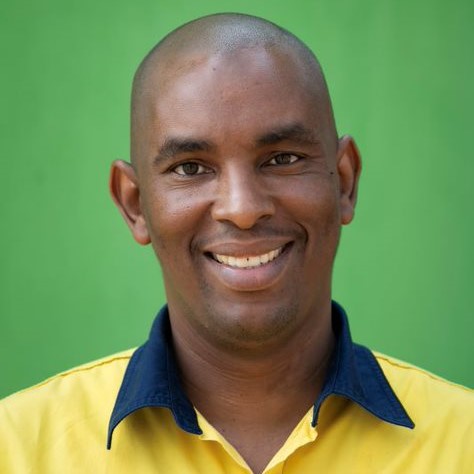
“Non-operational mines in South Africa experience a continuous influx of untreated acid mine drainage. Our process reduces the current cost of treating water by 30%.”
Boitumelo Nkatlo
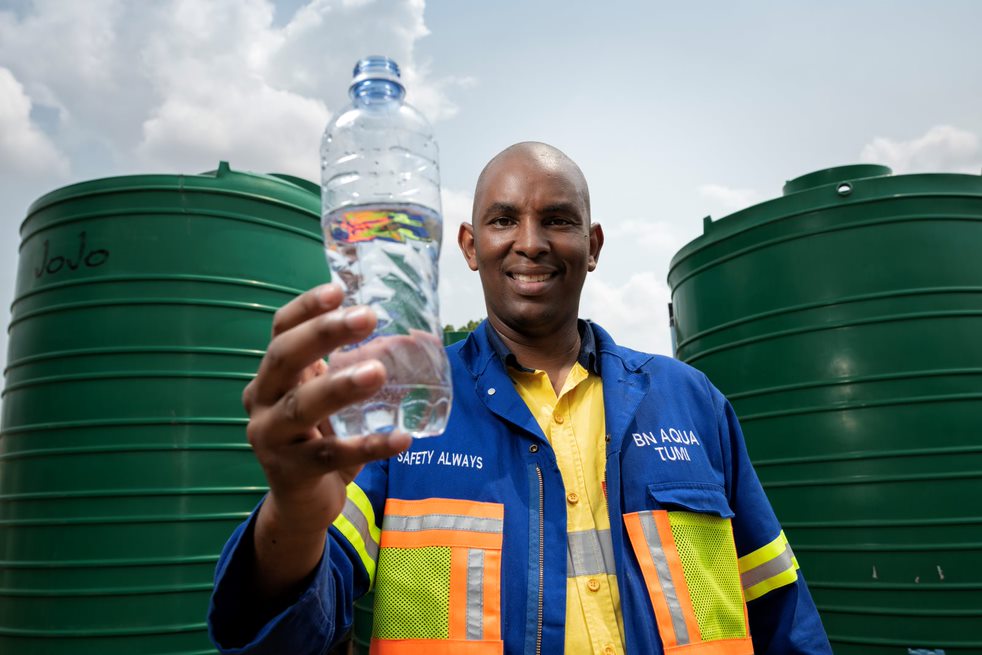
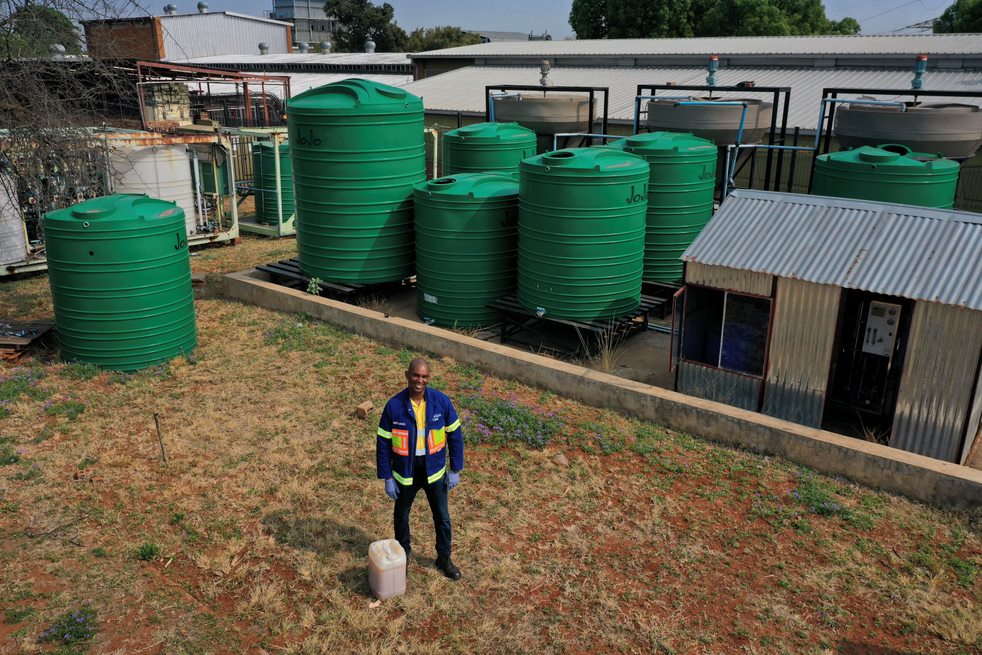
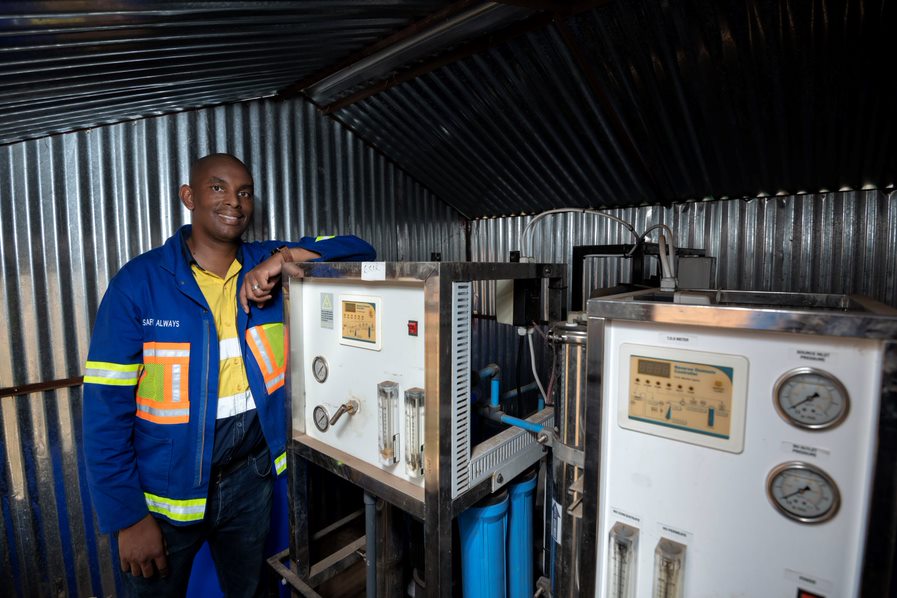
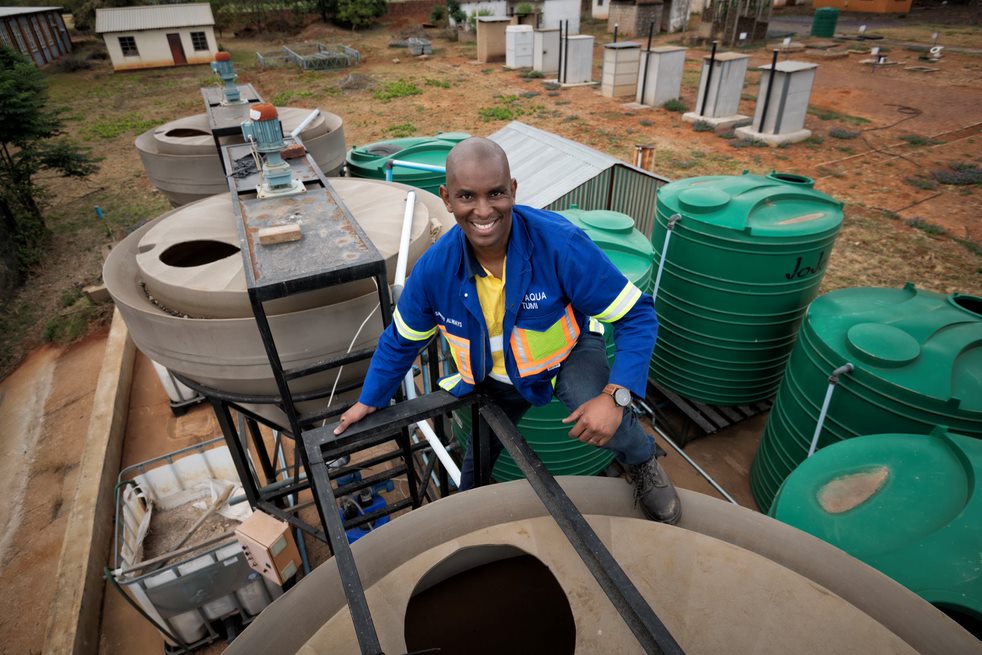
- Website: http://www.bnaqua.co.za/
- LinkedIn: https://za.linkedin.com/in/boitumelo-nkatlo-27a6ba1a
